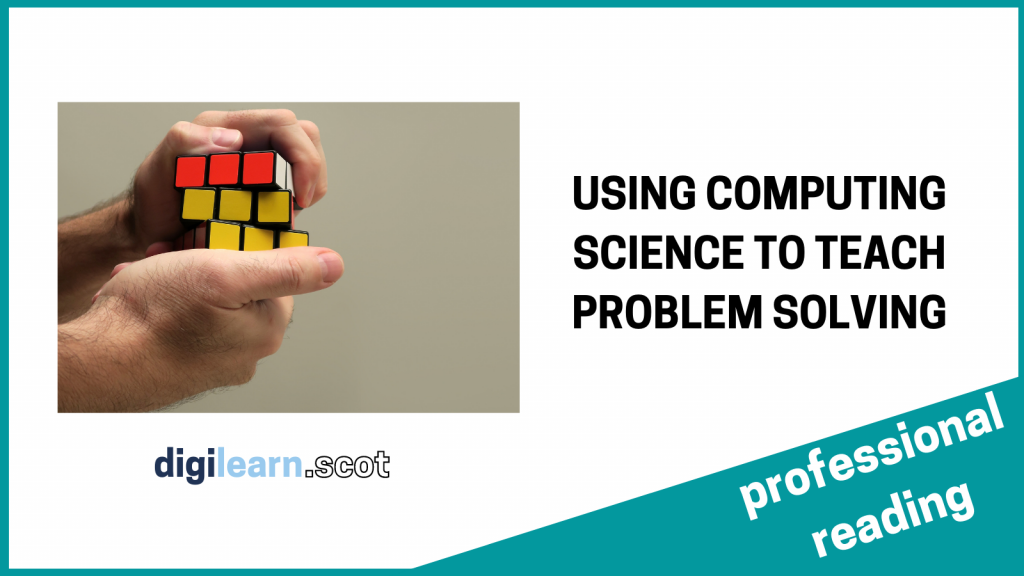Computers are mathematical devices, it’s as simple as that. The first computers were built by mathematicians (and still are, although they are now called computing scientists). One of the first ‘computers’ was designed by Charles Babbage to perform complex calculations. They have developed unimaginably since then, but computers still work on mathematical and logical principles. So, to understand computers and computing requires numeracy and maths.
Understanding how computers use the information we give them helps us understand how to use computers to solve problems. This is called computational thinking and is an important skillset to learn in computing. In Scotland we promote the Barefoot computational thinking skills:
- Predicting and analysing
- Making judgements
- Making steps and rules
- Spotting and using similarities
- Breaking down into parts
- Removing unnecessary details

Computational thinking is a problem-solving strategy that can be effective in the numeracy and mathematics classroom. These are some resources that can be engaging ang challenging when developing problem solving or computational thinking skills:
Barefoot provides a wide selection of activities to develop computational thinking in your setting, as well as posters and information to support your own understanding. These are some of the Barefoot Maths activities. You will need to signup (for free) to access:
Bebras runs an annual challenge to test across the UK, with over 200 Scottish schools registered. You can test yourself with last year’s Bebras Challenge or register (for free) and test yourself on challenges all the way back to 2013. Bebras offers challenges for a range of age groups:
CS Unplugged offers a range of units to develop computational thinking and problem solving. Some of these range from magic tricks to understanding the binary number system:
Let us know how you get on with any of these resources on twitter @DigiLearnScot or SHARE YOUR STORY
It might also be worth considering the PRIMM (predict, run, investigate, modify, make) approach to solving problems, and coding, alongside computational thinking skills.


